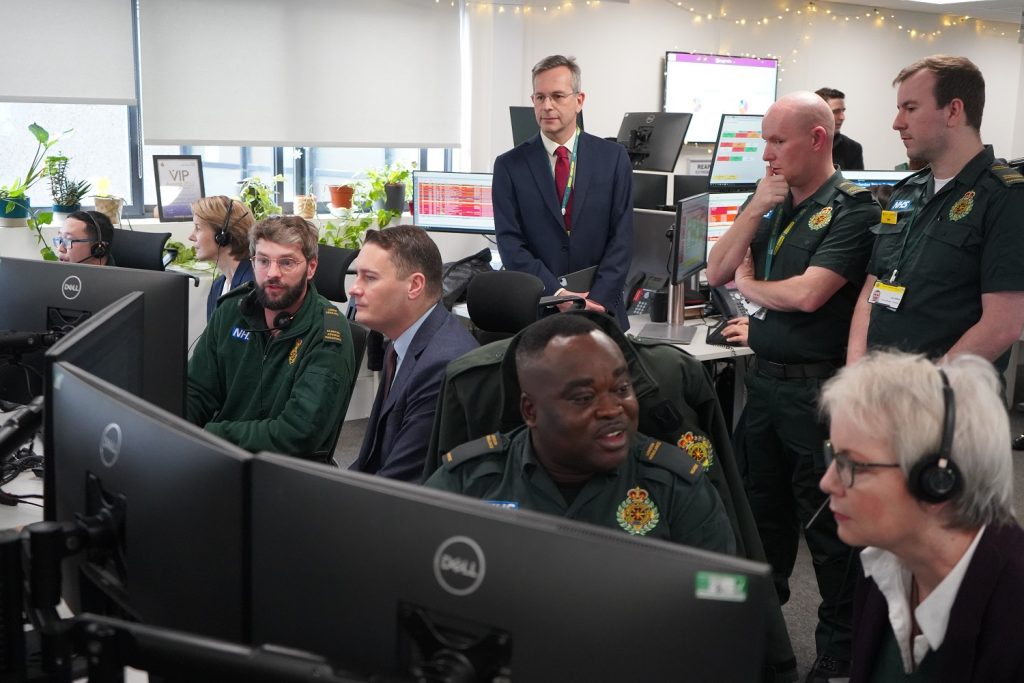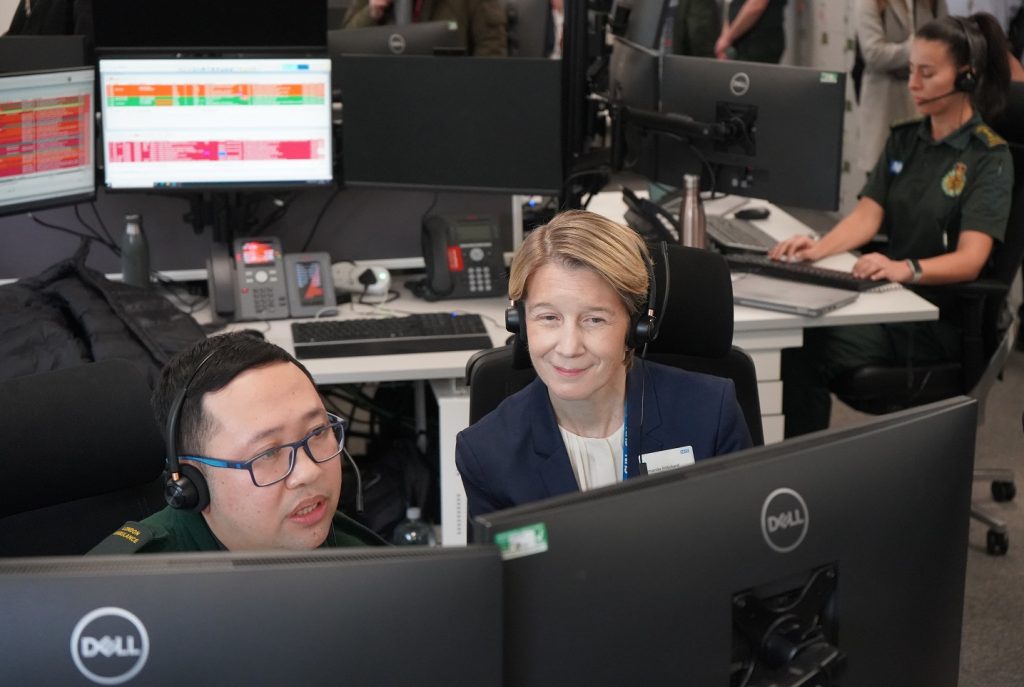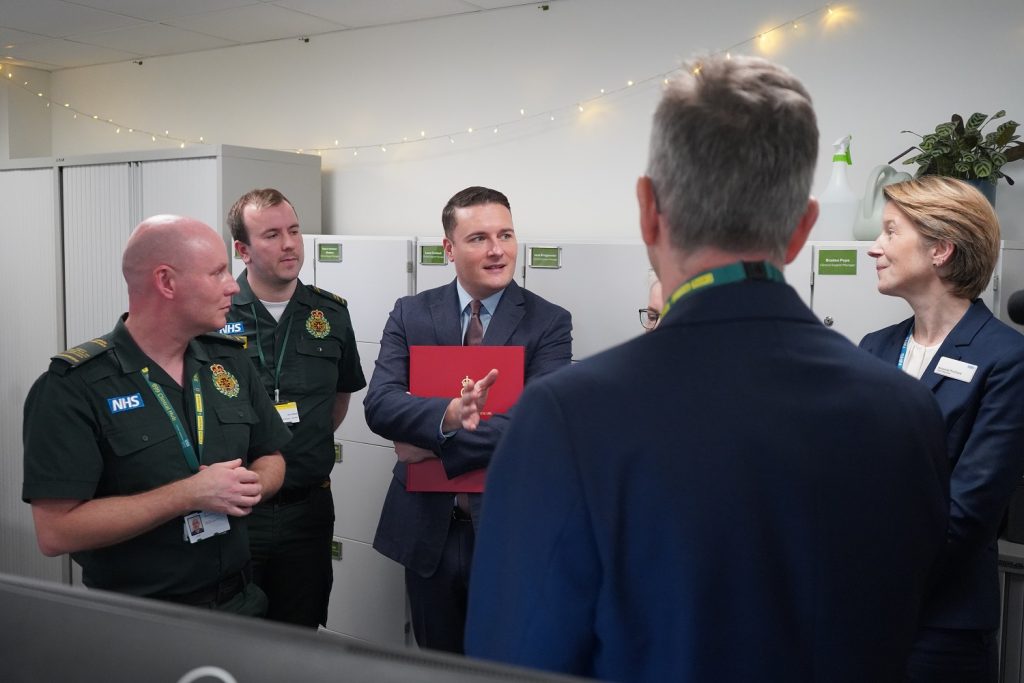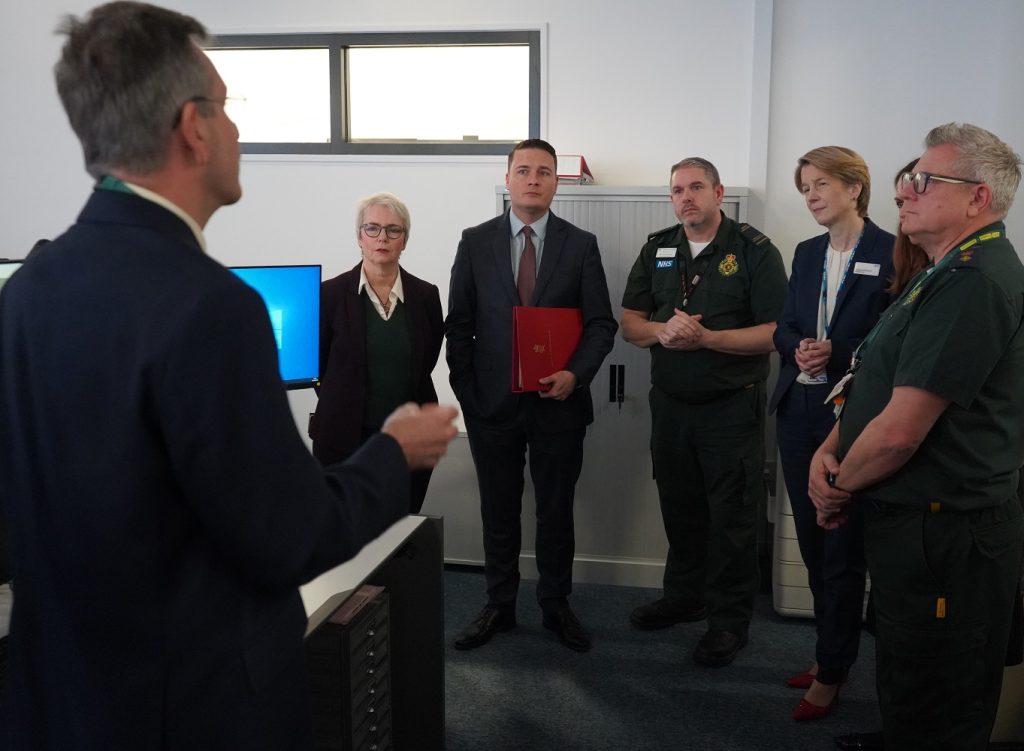London Ambulance Service welcomes health secretary and NHSE chief to outline preparations for challenging winter ahead
The Secretary of State for Health and Social Care, Wes Streeting and NHS England chief executive Amanda Pritchard visited the London Ambulance Service at its Waterloo Road HQ to hear about how it has bolstered its operations ahead of winter.

Accompanied by Health Minister Karin Smyth, Ms Pritchard and Mr Streeting heard on Monday how winter had arrived early with more than 16,500 999 and 111 calls taken on Saturday, meaning the service was experiencing demand not usually seen until well into January.
The visitors heard LAS had agreed one of the most detailed winter plans with NHS partners in addition to putting more ambulances on the road and increasing the number of staff in our control rooms.
All three guests then listened to calls being taken by the Clinical Hub – a room of clinicians who can ‘hear and treat’ patients over the phone – giving expert medical assessments and advice to reduce the number of people going to A&E unnecessarily wherever possible.

LAS has one of the highest rates of ‘hear and treat’ in the country with almost 23 per cent of 999 calls currently being dealt with by a clinician over the phone without delaying an ambulance response. London Ambulance Service Chief Executive Daniel Elkeles explained how each percentage improvement in the hear and treat rate meant on average ambulances reach patients who have had a stroke or heart attack around a minute faster. LAS is aiming to get this figure up to 25 per cent – or one in four 999 calls clinically assessed and treated on the phone without the need to send an ambulance to the patient.
The group then moved to the Tactical Operations Centre where Director of 999 Operations Centres Stuart Crichton introduced them to staff working with hospitals and NHS partners to ensure patients get the right care for their condition, and are only taken to busy emergency departments when it is necessary – helping to keep ambulances caring for patients who need us most.

Following the visit, Mr Streeting said:
“This year we’re seeing record pressures on services as we move into December.
“I want to see patient safety prioritised this winter as we brace ourselves for the coming months. I’m asking trusts to focus on ambulance delays, handovers and the longest A&E waits.
“We’ve already taken immediate action to keep patients safe by ending strikes – meaning this is the first winter in 3 years without staff on the picket line.
“This government’s Plan for Change sets out our work to bring down waiting lists, alongside the 10 Year Health Plan that will deliver fundamental reform to build an NHS that is there for us all year round.
“And I’d appeal to all eligible people to join the 27 million who have already protected themselves and the NHS, and get vaccinated.”

The 999 Winter Plan for 2024 was developed with NHS partners including integrated care boards and London’s hospitals.
It includes increasing the number of ambulances on the streets and staff in control rooms by more than 10 per cent throughout the week and putting up to 60 additional ambulances on the road at peak times to meet demand.
London Ambulance Service Chief Executive Daniel Elkeles said:
“It was a privilege to welcome our visitors today and show them how we have prepared for the cold season ahead. Winter is always busy for the NHS but this year it has come even earlier. Calls to our 999 control rooms are climbing as respiratory and gastrointestinal viruses spread and more Londoners start to celebrate the festive season.
“With our Winter Plan, we are doing everything we can to make sure patients get the right care. However, Londoners can do their part by enjoying the holidays sensibly, looking after elderly friends and relatives and getting their vaccinations for flu and COVID if eligible.
“Seek medical help if you need it. Don’t ignore your symptoms but remember 999 should be for life-threatening emergencies. If you need advice or reassurance, NHS 111 online is always a good place to start.
“We hope people enjoy their pre-Christmas celebrations but they do always mean we see more alcohol-related incidents that could be avoided. We ask the public to drink responsibly, plan their journeys back at night so they get home safely, and of course look after their friends.”
As the nights have drawn in over recent weeks, 999 calls volumes have risen by almost 10 per cent and now hover above 6,000 a day, similar to pressure seen in winter 2020. At the end of last month LAS saw 7,000 999 calls – a number of emergency calls usually only seen on New Year’s Eve.

Follow us on social media: